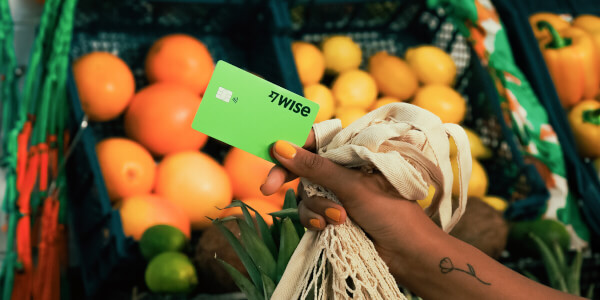Money in the Philippines: Banks, ATMs, cards and currency exchange
Read our essential guide to money in the Philippines, including banks, ATMs, cards and currency exchange.

Planning a vacation in the Philippines? You’re probably focused on all the things you’ll see and do in this tropical paradise. However, you should also take some measures in order to stay healthy during your trip.
When you travel, your body is more vulnerable than usual as it’s exposed to climates, foods and germs you’re not used to. Vaccinations can help acclimate you to these germs in a controlled way and lower your risk of picking up an unwanted disease. In this guide, we’ll help you figure out whether you should get any vaccinations for the Philippines.
And if you need a cost-effective way to handle your finances across borders, check out the Wise card from the money services provider Wise. It can help you get ready for your stay in the Philippines and save money while travelling abroad. You can pay and withdraw cash like a local for low fees* and at the mid-market exchange rate.
You don’t need any new vaccines in order to enter the Philippines from the UK, unless you’ve recently travelled to countries with high risk for certain diseases. There are still vaccines you should consider getting, since they can help you stay safe and healthy. Some are recommended to everyone and others only to some vulnerable groups, such as those with underlying conditions.
In general, it’s advisable to get the necessary vaccines at least 6 weeks before your trip, so try to make time for this.¹
The exact vaccinations you might need depend on how long you’ll be in the Philippines for and how you plan on spending your time while you’re there.
Let’s cover all the travel vaccinations for the Philippines.
Everyone who travels to the Philippines should be up-to-date on routine UK vaccinations. These include but are not limited to MMR and diphtheria-tetanus-polio shots.
Although most of these vaccines are received at a very young age, it’s common to get boosters when necessary. For instance, if your last tetanus shot was over 10 years ago, it’s a good idea to get a booster dose.
Hepatitis A is generally contracted through contaminated food and water. It’s particularly important to get vaccinated if you have certain health issues, such as liver or kidney diseases and haemophilia.
Typhoid is another disease spread through contaminated food and water. Although a vaccine can be of tremendous help, you should still be careful of what you eat or drink.
If you plan on getting tattoos, piercings or even trying acupuncture in the Philippines, a hepatitis B vaccine is recommended. This disease is mostly spread through blood, so your activities are very important. However, if you visit places with high standards of hygiene, you shouldn’t be scared of getting sick.
This disease can be transmitted through the bite of an infected mosquito. It’s also important to avoid mosquito bites in general, especially between dusk and dawn when they’re most active.
You can get rabies if an infected animal bites you, but also if it only scratches you or licks a wounded area of your skin. By participating in activities such as trekking, cycling or running, you’re increasing the risk of contracting it. The rabies vaccine is also recommended to those who plan on staying in the Philippines for a longer time.
You can get cholera through contaminated food and water. There’s a low risk of contracting it if you take basic hygiene precautions, but floods are known to be risk factors. If you want to ensure an extra measure of safety, get a cholera vaccine.
If you visit any country that has a high yellow fever risk before entering the Philippines, you’ll need a yellow fever vaccination certificate. Countries in Africa and South America are considered high-risk, but make sure you check for any updates before your trip.⁴
There’s a risk of schistosomiasis in the Philippines, a parasitic infection spread by freshwater snails. You can avoid it by only swimming in the sea or chlorinated water. However, if you notice a rash or flu-like symptoms after being in freshwater, make sure you see a doctor.
Since there’s dengue and Zika virus in the Philippines, you should do your best to avoid mosquito bites. You can do so by wearing protective clothing, using mosquito nets or applying insect repellent.
Also, drinking tap water in the Philippines is not recommended. Make sure you only drink bottled, sealed water and avoid ice in your drinks.⁵
Lastly, make sure you have a travel health insurance policy. You never know when you might need some sort of medical help.
That’s all you need to know about required and optional vaccines for the Philippines, as well as staying healthy on your trip. However, make sure you look for any official updates before heading off.
When it comes to holiday spending, the Wise card, from the money services provider Wise, is a convenient choice. For a one-time cost of just £7, you can spend and withdraw like a local in the Philippines and 150+ more countries. You can also send money to pay for a rental car, accommodation, or the like while still in the UK.
With the Wise card, your pounds are automatically converted at the mid-market exchange rate whenever you spend. You’ll just pay a small conversion fee, or no fee if you already have the currency in your Wise account*.
Please see the Terms of Use for your region or visit Wise fees & pricing for the most up-to-date information on pricing and fees.
Sources used:
Sources last checked on date: 26-July-2024
*Please see terms of use and product availability for your region or visit Wise fees and pricing for the most up to date pricing and fee information.
This publication is provided for general information purposes and does not constitute legal, tax or other professional advice from Wise Payments Limited or its subsidiaries and its affiliates, and it is not intended as a substitute for obtaining advice from a financial advisor or any other professional.
We make no representations, warranties or guarantees, whether expressed or implied, that the content in the publication is accurate, complete or up to date.

Read our essential guide to money in the Philippines, including banks, ATMs, cards and currency exchange.

Travelling to the Philippines and need to take out cash? Learn where to find ATMs, how much withdrawal charges are, and how to avoid ATM fees.

Read our guide detailing how to withdraw money from Wise in the Philippines and what are the limits and fees included.

Check out our in-depth guide on everything you need to know about buying a prepaid Philippines SIM card, including different providers, pricing, and features.

Should you pay with cash or card in the Philippines? A handy guide including cash etiquette, Filipino ATMs and using your UK card.